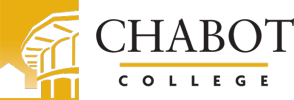
Automotive Engine Performance
This noncredit program map from the 2024-2025 catalog year represents one possible pathway to complete this program and is intended for students who do not need credit for transfer, but who wish to obtain knowledge and skills needed for entry level positions in the workforce or obtain short-term vocational skills needed for immediate employment.
Noncredit Programs at Chabot College are an excellent low-cost way to earn a certificate since noncredit courses are tuition FREE. Courses focus on skill development and growth, preparing students for employment and future academic coursework. Plus, you can repeat a noncredit course as many times as you want!
I'm ready to get started.What do I do next?
- Review this program map to get an overview of the required courses
- Meet with a counselor to develop your customized student education plan www.chabotcollege.edu/counseling
- Use DegreeWorks, an online student education planning tool, to track your progress toward graduation www.chabotcollege.edu / admissions / degreeworks
Chabot College offers several NONCREDIT Certificates of Completion in Automotive Technology. The certificate is built around a core set of courses in specific automotive areas. The classes are designed to upgrade your skills and place you in the industry quickly. As you progress through your automotive program, you will be able to obtain certificates in different automotive areas and start entering your new career in the automotive industry. You will also be prepared to take your industry certification exams during your courses here at Chabot College from the National Institute for Automotive Service Excellence (ASE) and California State Licensing.
What can I do with this major?
As a graduate you will be highly sought after for entry level technicians for positions in both the Dealership and Aftermarket areas. You will know how to diagnose, service, and repair an automobile with pride and confidence.
There are several employment opportunities in both the Dealership and Aftermarket areas, some of them are:
- Service Technician
- Automotive Engine Specialist
- Alignment Technician
- Brake Service Technician
- Automatic and Manual Transmission Technician
- Automotive Air Condition Specialist
- Body Electrical Technician
- Engine Management / Driveability Specialist
- Master Technician
- Hybrid and Electric Vehicle Technician
- ADAS Specialist
- Shop Foreman
- Service Advisor
- General Manager
Learning and Career Pathway
- Industrial Technology & Automotive
Icon Key
Semester 1
ATEC
206A
Automotive Electrical and Electronic Fundamentals
ATEC
201
Automotive Engines
Semester 2
ATEC
206B
Automotive Electrical and Electronic Systems
ATEC
208
Automotive Air and Fuel Delivery Systems
Semester 3
ATEC
210
Automotive Advanced Engine Performance
Note: noncredit program classes are offered in hours, not units. The unit values above should be viewed as the number of hours each course requires.